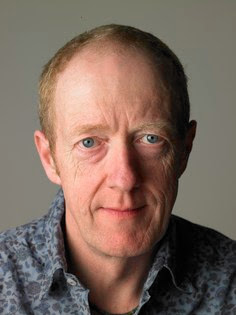A powerful novel about destiny, home and surviving in a world in flux
Britain, AD 72.
Quintus, long exiled from his people, has travelled great odysseys in the retinue of a powerful Roman. Though a citizen of nowhere, is a man of reason, fluent in many languages. Olwen, imperious tribal royalty, is rooted in her native land – a volatile warrior, fiercely attached to the natural world.
Given away by her father as part of a peace treaty, Olwen flees during the night, taking Quintus with her. Hunted by an army, the two make their way across the country, living off the land, heading for the western shore...
Run To The Western Shore by Tim Pears is published today, 2 November 2023, by Swift Press. As part of this #RandomThingsTours Blog Tour, I am delighted to share an extract from the book with you today.
Behind the chieftain came his warriors. They too rode proudly, packed close together, their smaller horses tightly reined, jostling against one another. Leather squeaked; harness jingled. The horses stamped and snorted, breath- ing heavily under the hot sun. The men all wore helmets and carried spears or javelins. Their tunics and trousers had woven patterns and were brightly coloured: red, blue, yellow. One or two had a scalp, others a skull, hung from a front pommel of their saddles. Provocations.
Throughout this time he was always writing, and later making short films. He completed a Directing course at the National Film and TV School, graduating in the same month that his first novel, In the Place of Fallen Leaves, was published, in 1993.
In the Place of Fallen Leaves was awarded the Hawthornden Prize and the Ruth Hadden Memorial Award. Tim’s second novel, In a Land of Plenty, was made into a ten-part drama series for the BBC broadcast in 2001. Other novels include, A Revolution of the Sun, Wake Up, Blenheim Orchard, Landed and Disputed Land.
Landed was given the MJA Open Book Award and was shortlisted for the Royal Society of Literature Ondaatje Prize and the IMPAC Dublin Literary Award. All of these novels were chronicles of our time, exploring moral challenges as they are expressed in the dynamics and politics of relationships and family life.
In the Light of Morning was a departure, set in Yugoslavia in the Second World War. Tim then embarked on his most ambitious work, a trilogy of novels (The Horseman, The Wanderers and The Redeemed) set before, during and in the aftermath of the First World War.
Tim is a Fellow of the Royal Society of Literature. He lives in Oxford, and is married to a psychoanalyst. He and his wife have two children. Apart from family life, he enjoys urban rambling and walking the dog (his first listener and a harsh critic) and rural foraging. Along with cinema, sport has been Tim’s other passion. He was a third-rate footballer and mediocre tennis player, and remains a poor ping-pong player. He continues to be an avid spectator of the ‘amazing human invention that is the game of football’.

.jpg)
.png)

.png)


.jpg)
No comments:
Post a Comment